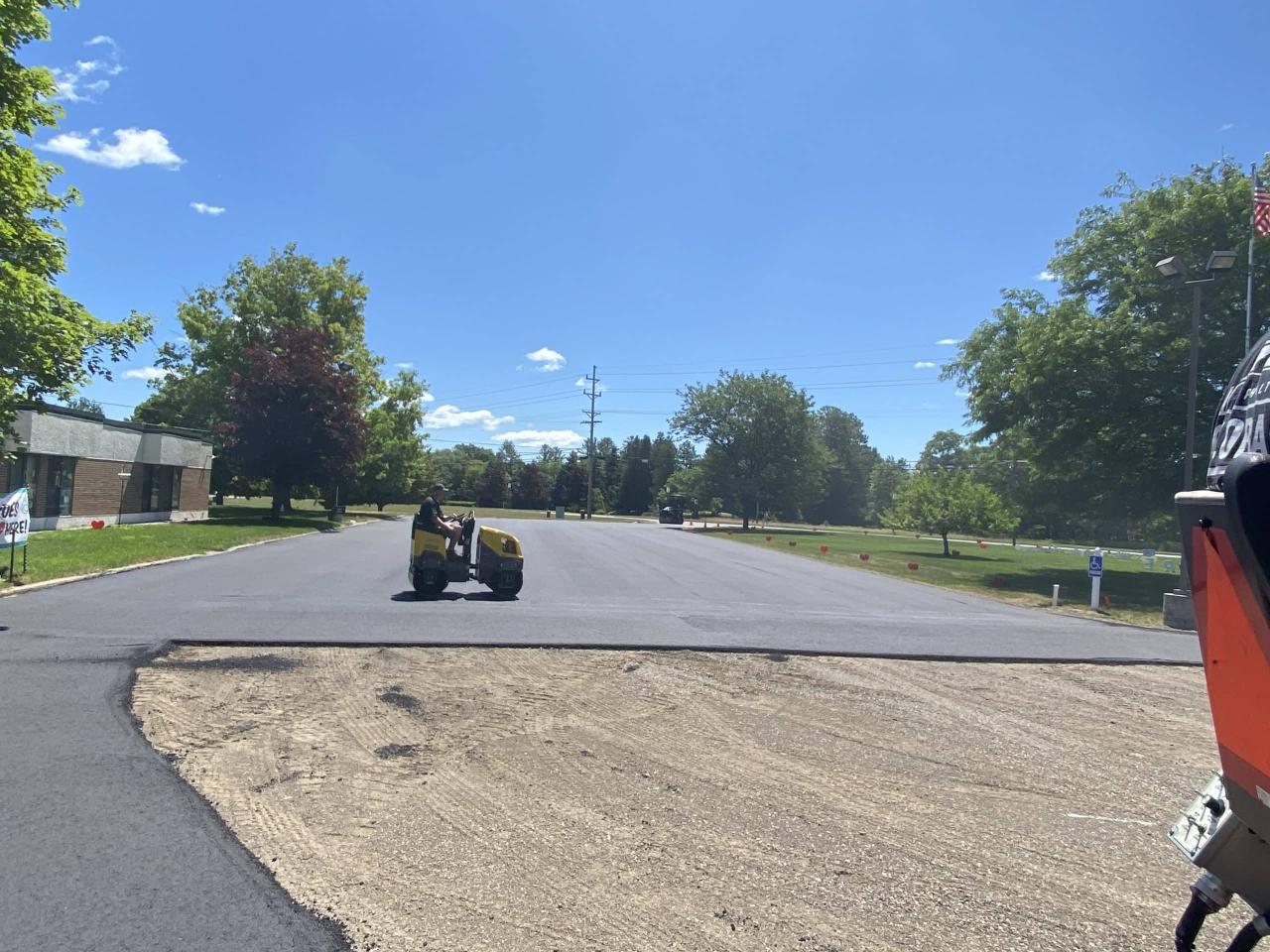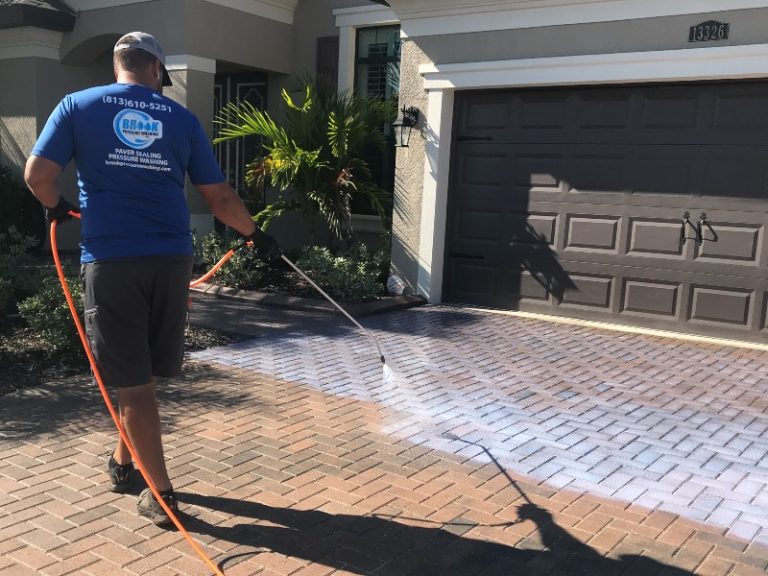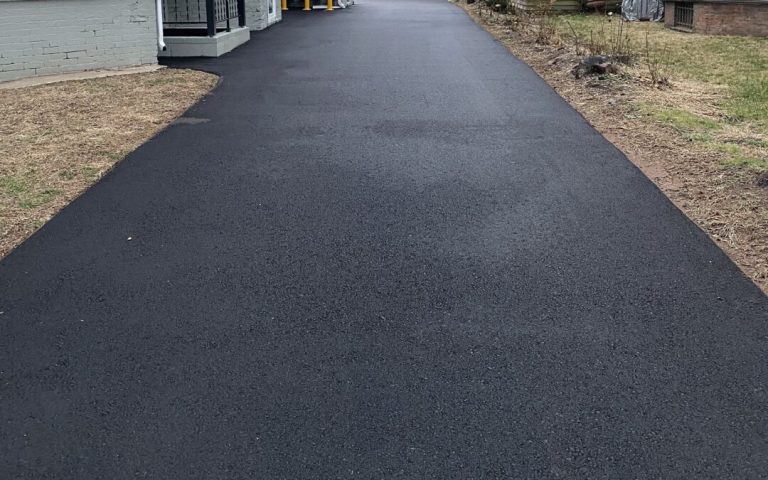Commercial Paving Contractors Expert Insights
Commercial paving contractors are essential for businesses needing durable and aesthetically pleasing surfaces. They handle everything from initial consultations to final project completion, ensuring projects meet specific needs and budgets. Choosing the right contractor is crucial, as the right paving material selection and execution can significantly impact a business’s image and long-term costs.
This guide delves into the services offered by commercial paving contractors, comparing paving materials like asphalt, concrete, and pavers. We’ll explore factors influencing pricing, project timelines, and crucial aspects of contractor selection. Real-world case studies highlight successful projects and the considerations involved in planning and execution.
Commercial Paving Contractor Services

Commercial paving contractors play a vital role in the development and maintenance of various commercial spaces. They provide essential services that enhance the functionality and aesthetic appeal of properties, ranging from parking lots and driveways to complex plaza designs. Understanding the diverse range of services offered, the materials utilized, and the factors influencing pricing is crucial for property owners and managers seeking these crucial services.
Common Commercial Paving Services
Contractors offer a comprehensive suite of paving services. These services include the design, construction, and maintenance of parking lots, driveways, walkways, and plaza areas. Specialized services, such as sealing, crack repair, and resurfacing, are also frequently provided. Furthermore, the installation of retaining walls and drainage systems is often included in larger projects.
Paving Materials Comparison
Different paving materials offer unique advantages and disadvantages for various commercial applications.
- Asphalt is a cost-effective and readily available material. Its flexibility allows for relatively quick installation, and it is durable when properly maintained. However, asphalt’s lifespan can be shorter compared to other options, and it may require more frequent repairs and resurfacing. Examples include large parking lots and driveways in suburban and urban areas.
- Concrete is a strong and durable material that is known for its long lifespan. Concrete provides a smooth, consistent surface, but its installation can be more time-consuming than asphalt. Concrete pavements are highly suitable for high-traffic areas, such as loading docks and heavy-vehicle access points. Concrete’s strength and durability are key factors in its popularity for these areas.
- Pavers, often made from stone or brick, offer a visually appealing and customizable option. They can create intricate designs and enhance the aesthetic appeal of outdoor spaces. However, pavers can be more expensive than asphalt or concrete, and their installation can be more complex. Examples include walkways, patios, and decorative areas in upscale commercial spaces.
Factors Influencing Pricing
Several key factors contribute to the cost of a commercial paving project. These include the project’s size and scope, the type and quantity of materials needed, labor costs, and the location of the project. Additional factors like site preparation, permitting, and potential environmental considerations can also impact the overall price. For example, a larger project requiring specialized materials or complex site work will generally command a higher price compared to a smaller, straightforward job.
Steps in a Typical Commercial Paving Project
A typical commercial paving project follows a systematic process from initial consultation to completion.
- Initial Consultation and Design: The contractor assesses the site, gathers project specifications, and develops a detailed plan. This stage involves discussions with the client to define their needs and preferences. This is critical to ensuring the final product meets the intended requirements.
- Site Preparation: The contractor prepares the site by removing existing pavement, leveling the ground, and addressing any drainage issues. Thorough site preparation is vital to ensuring a stable and lasting pavement structure.
- Material Procurement: The contractor sources and obtains the necessary paving materials, ensuring quality and compliance with project specifications. This includes ordering asphalt, concrete, or pavers based on the chosen material.
- Installation: The contractor carries out the paving work, ensuring adherence to safety protocols and industry standards. This phase involves the actual laying of the selected material, using appropriate tools and equipment.
- Quality Control and Final Inspection: The contractor performs quality checks to ensure the project meets standards and addresses any issues. A final inspection with the client ensures satisfaction with the finished product.
Paving Material Comparison Table
| Paving Material | Estimated Lifespan | Maintenance Requirements | Cost Considerations |
|---|---|---|---|
| Asphalt | 10-15 years (variable) | Regular sealing, crack repair | Generally lower initial cost |
| Concrete | 20-30 years (variable) | Crack repair, occasional resurfacing | Higher initial cost than asphalt, lower than pavers |
| Pavers | 25-50 years (variable) | Cleaning, occasional repairs | Highest initial cost, lowest long-term maintenance |
Commercial Paving Project Case Studies
Commercial paving projects often present unique challenges and opportunities. Successful projects hinge on meticulous planning, expert execution, and a deep understanding of the specific needs of each client. This section explores successful projects, highlighting the critical design considerations and the diverse types of commercial properties that benefit from our paving services.
Successful commercial paving projects consistently demonstrate a blend of functionality and aesthetics. The design phase plays a pivotal role in achieving a final product that not only meets the practical requirements of the property but also enhances its overall appeal. This includes considerations like durability, safety, and visual integration with the surrounding environment.
Successful Commercial Paving Project Examples, Commercial paving contractors

Various commercial properties, from bustling retail stores to sprawling warehouses, require durable and functional paving solutions. Our team has successfully delivered numerous projects across diverse sectors.
- A retail store renovation project involved replacing aging asphalt with a modern concrete paving system. This upgrade significantly improved the store’s curb appeal, enhancing customer perception and attracting foot traffic. The project also addressed drainage concerns, preventing water damage and maintaining the safety of the premises.
- An office complex expansion required a new parking lot. The design incorporated ample space, improved traffic flow, and ADA-compliant features. Careful site analysis and meticulous planning ensured the new lot seamlessly integrated with the existing infrastructure.
- A warehouse facility needed a new loading dock and access road. The project utilized specialized paving materials to handle heavy traffic and forklift movement. The design focused on maximizing efficiency and safety for the warehouse operations.
Design Considerations in Commercial Paving
Design is crucial for a successful commercial paving project. It balances aesthetics and functionality, considering factors like traffic flow, drainage, and accessibility.
- Aesthetics play a vital role in enhancing the property’s overall appearance. High-quality paving materials and innovative design elements can elevate the visual appeal of a commercial space. This is particularly important for retail and hospitality properties where first impressions are critical.
- Functionality is paramount. The design must account for traffic patterns, pedestrian flow, and accessibility requirements. This includes proper drainage to prevent water damage and ensure safety.
Types of Commercial Properties Requiring Paving Services
Commercial paving services are essential for a wide array of commercial properties. The specific needs and considerations vary based on the type of business.
- Retail stores: High pedestrian traffic demands durable, aesthetically pleasing paving solutions that can withstand constant use. Safety is paramount, as is the creation of a visually appealing storefront.
- Office buildings: Parking lots and walkways need to accommodate employees and visitors. Functionality, safety, and accessibility are critical factors.
- Warehouses: Heavy-duty paving solutions are necessary to withstand the demands of forklift traffic and other heavy equipment. Durability and efficient drainage are key priorities.
Case Study Analysis: The “Tech Solutions” Warehouse Expansion
The Tech Solutions warehouse expansion project exemplifies a successful commercial paving project. The project involved constructing a new loading dock and access road for a rapidly growing e-commerce company.
- Unique Characteristics: The project demanded specialized paving materials to handle heavy forklift traffic and frequent deliveries. The design incorporated specific drainage systems to prevent water accumulation and ensure operational efficiency.
- Factors Contributing to Success: Close collaboration with the client ensured the paving solution met their specific needs. The use of high-quality materials and expert installation contributed to the project’s success. Thorough site analysis and planning mitigated potential challenges.
Comparative Analysis of Commercial Paving Projects
The table below compares different project types based on paving materials, budget, and anticipated ROI.
| Project Type | Paving Material | Project Budget (USD) | Anticipated ROI (Years) |
|---|---|---|---|
| Retail Store Renovation | Concrete | $50,000 – $150,000 | 2-3 |
| Office Building Parking Lot | Asphalt | $75,000 – $250,000 | 3-5 |
| Warehouse Expansion | Concrete, Asphalt | $100,000 – $500,000+ | 3-7 |
Contractor Selection and Evaluation

Source: globalasphalt.com
Choosing the right commercial paving contractor is crucial for successful and cost-effective projects. A poorly selected contractor can lead to delays, quality issues, and ultimately, higher overall project costs. Thorough evaluation is key to ensuring a positive outcome.
Selecting a reputable contractor involves more than just price. Critical factors such as experience, certifications, insurance, and project references must be carefully assessed. This process allows for a well-informed decision, minimizing potential risks and maximizing the likelihood of a smooth and profitable project.
Key Characteristics of a Reliable Contractor
A dependable commercial paving contractor possesses a strong track record, demonstrating expertise in various aspects of paving projects. This encompasses not only the technical expertise required for material application but also the project management skills to handle logistical challenges and meet deadlines. Such contractors will also have a history of completing projects within budget and adhering to quality standards.
Evaluating Potential Contractors
Thorough evaluation is crucial for selecting the right contractor. Several methods can be used to assess potential contractors, allowing for a comprehensive evaluation of their capabilities.
- References: Contacting previous clients is vital. Inquire about the contractor’s performance, adherence to schedules, quality of work, and responsiveness to issues. Positive feedback from previous projects provides strong evidence of a contractor’s reliability.
- Portfolios: Reviewing a contractor’s portfolio offers insights into their past work. Analyze the types of projects they’ve undertaken, the complexity of the projects, and the quality of the completed work. This provides a visual representation of their capabilities and experience.
- Pricing Structures: Scrutinize the pricing structure to understand the costs associated with materials, labor, and project management. Compare quotes from multiple contractors, ensuring the pricing reflects the scope of work and the quality of materials used. Avoid contractors whose prices appear unusually low, as this could indicate potential compromises in quality or workmanship.
Importance of Contracts and Legal Considerations
A well-drafted contract is essential for protecting both the client and the contractor. The contract should articulate the scope of work, timelines, payment terms, and dispute resolution procedures. Legal counsel should be consulted to ensure the contract is legally sound and protects the client’s interests. Understanding the local regulations and permits required for paving projects is also vital.
Importance of Project Timelines and Deadlines
Project timelines and deadlines are critical for commercial paving projects. Meeting deadlines is vital to avoid disruptions to business operations or other scheduled activities. Assess the contractor’s ability to manage their time effectively and adhere to project schedules. Thorough planning and clear communication are key to achieving project completion within the agreed-upon timeframe.
Criteria for Selecting a Paving Contractor
The following table presents Artikels’ essential criteria for selecting a commercial paving contractor.
| Criteria | Evaluation |
|---|---|
| Experience | Years in business, types of projects completed, and team experience. |
| Certifications | Relevant industry certifications, demonstrating compliance with standards. |
| Insurance | Proof of liability and workers’ compensation insurance protects the client from potential claims. |
| Project References | Contact information and feedback from previous clients, assessing the contractor’s track record. |
Ending Remarks: Commercial Paving Contractors

Source: co.uk
In conclusion, navigating the world of commercial paving requires careful consideration of materials, budgets, and contractor expertise. This overview has provided a comprehensive understanding of the services, selection process, and considerations inherent in choosing the right commercial paving contractors. By understanding the factors involved, businesses can make informed decisions to ensure successful and long-lasting paving solutions.




